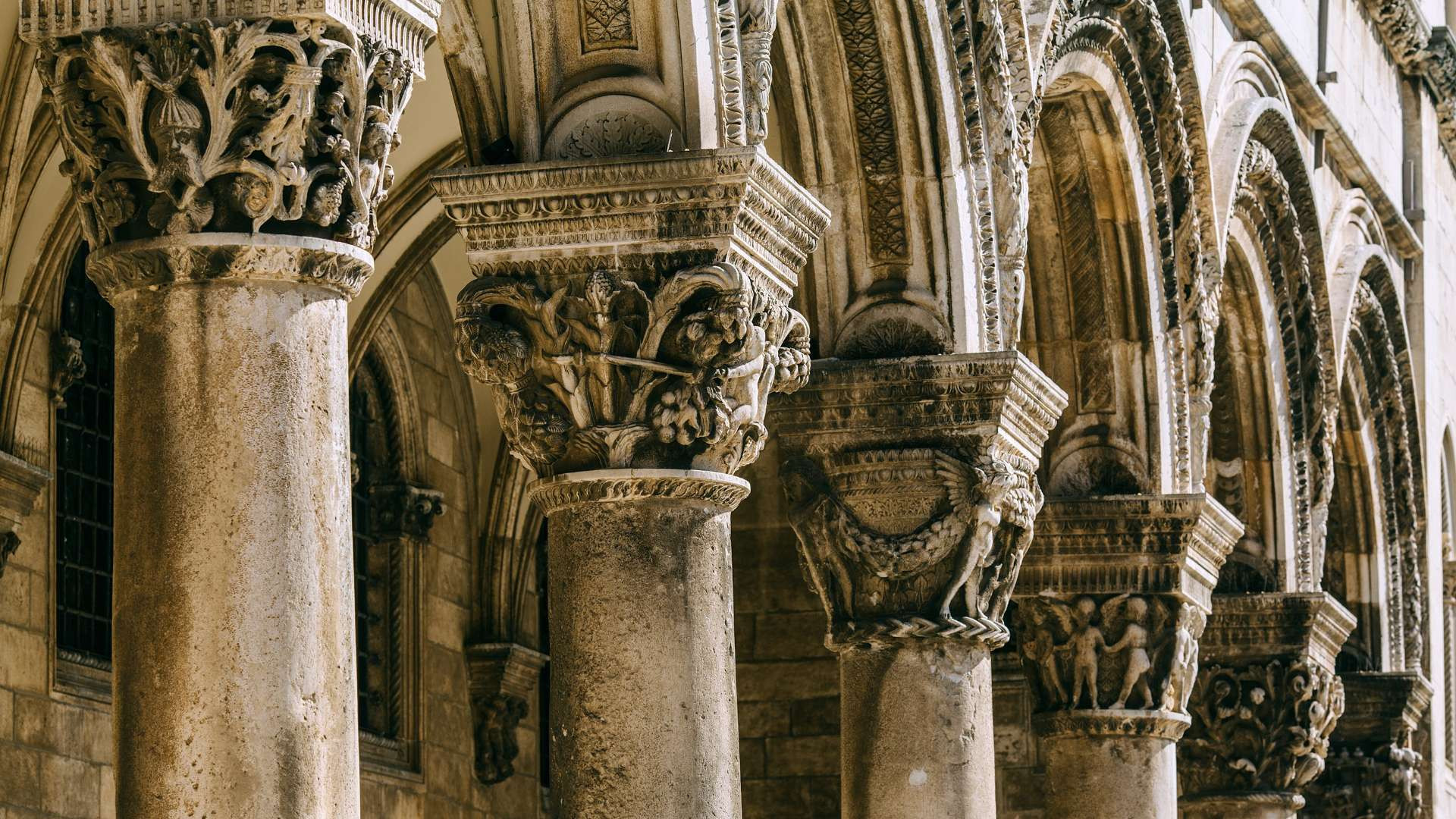
The 750th Anniversary of the Dubrovnik Statue
This year, Dubrovnik has the exceptional honour of commemorating the year of The Statute of Dubrovnik, founded in 1272 as one of the world's oldest.
Dubrovnik, and later the Dubrovnik Republic, was first under the protection of Byzantine Empire, than the sovereignty of Venice, and ruled as a free state from 14th to 19th century. In the thirteenth century, various European countries (kingdoms) began to establish their own rules and regulations. There was a strong need in Dubrovnik to standardize legal procedures and install laws in the public realm, while to simultaneously remain in conformity with Venetian institutions and their representatives in Dubrovnik. Laws were also required in the economic, commercial, and mercantile spheres to defend the rights of traders.
There was a need to serve justice that „strengthens countries, increases and multiplies cities, gives birth to harmony, nurtures peace, governs people and nations to live calmly and peacefully" and the answer to this need was the Law Book - The Statute of Dubrovnik.
The Statute formalized Roman norms and local customs, breaking them into eight separate legal chapters with instructions ranging from urban planning to civil rights. The Statute addressed the privileges and responsibilities of the Count, Archbishop, judges, and other public officials, as well as various civil and judicial procedures, family and relations regulations, inheritance and ownership issues, criminal law, maritime law, and all other rules necessary for the city's smooth operation.
Although the Statute was established as a legally binding document in 1272, the earliest legislation goes back to 1190 and pertains to the Festivity of St. Blaise, the patron saint of Dubrovnik who is beloved and cherished by its citizens, and whose feast day has been celebrated for centuries on February 3rd. Most other "laws" were in the form of a notary document, and not all were included in the main Statute in 1272.
So, what were some of the regulations and laws that the Statute covered?
No political choices were permitted while the south wind (jugo) blew. The Statute stated specifically that no substantial decisions, resolutions, or discussions would be taken, and that penalties for offences committed during jugo would be reduced.
The Rector, the Governor of the Dubrovnik Republic, reigned for only one month - all to prevent corruption. He had to be at least 50 years old and come from an aristocratic family. The iconic stone inscription at the Palace's entrance, "Obliti privatorvm pvblica cvrate" – "Forget the private and take care of the public." – was there to remind him daily of that aim. Another interesting fact is that the Republic of Dubrovnik had a total of 5366 rectors!
Because of Dubrovnik's importance as a major commercial and shipping centre, items (and illnesses) from all over the world found their way to southern Dalmatia. In 1377, the city council ordered that sailors arriving from questionable areas spend a month quarantined on the adjacent uninhabited islands of Mrkan, Bobara, and Supetar with their possibly harmful cargo before being permitted to unload their commodities in Dubrovnik warehouses.
There is also a whole chapter devoted to family law. In the Statute, both father and mother have equal jurisdiction over the son. The father could not allow his son to marry until his daughter(s) were married first. All rings (engagement, wedding, and other) are the sole property of a lady/wife to use as she sees fit. According to the Rectors' instructions, if a man would decide to throw his wife out of the house, he must provide for her costs until he decides to bring her back home.
When it comes to inheritance, a father might split assets among his sons without their approval. He was also given the option of allocating a somewhat larger portion to his eldest son. The Statute further stated that a father might disinherit his son(s) if he injures his father or mother, sleeps with his father's mistress, accuses his father in the court of a felony punishable by severe punishment or death, and/or endangers his father's or mother's life in any manner.
People of Dubrovnik were not authorized to charter a foreign ship under pain of a twofold monetary penalty imposed by the city, except if they were Venetian ships. There are also other sections about the manufacture of products or the trade of commodities. For example, no resident was permitted to make vinegar, honey, or certain other items for purposes other than personal use. Special controls were in place for Dubrovnik's most valuable assets – salt and wheat – and no imports or sales were permitted without the permission of the Rector.
In 1301, the city got medical assistance and the first pharmacy, which is still in operation today within the Franciscan Monastery in Dubrovnik Old Town, and an almshouse in 1347. Slavery was outlawed in Dubrovnik in 1418, and the first orphanage was established in 1432. In the 15th century, a "modern" water delivery system was also introduced.
Dubrovnik was without a doubt a forerunner in creating and implementing what are known today as modern laws and institutions. In the 500 years leading up to its dissolution in 1808, only a few of the Ragusan Republic's legal chapters were ever repealed. The Dubrovnik Statute was not only a revolutionary legal book, but also a portrayal of history and ordinary life in Dubrovnik and the Mediterranean throughout Europe's last Middle Ages and glorious renaissance.
Photo by Maria Orlova from Pexels
